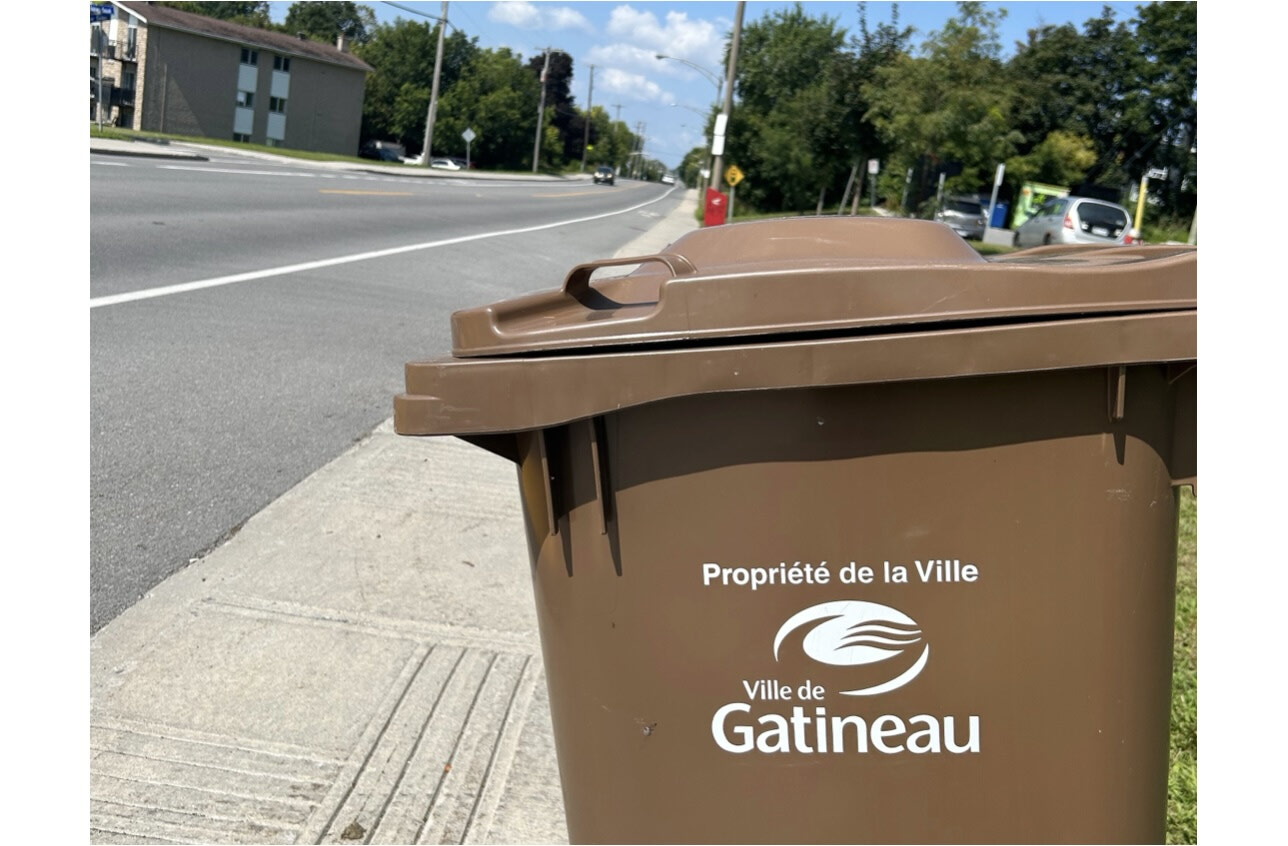311 calls up as citizens continue to adjust to robotic waste collection
Taylor Clark
Gatineau is in “listening mode” after the City received higher-than-expected complaints from citizens about the transition to robotic collection of waste and residual materials.
“You can see that it's a big change of habit, and it's not easy. But what I want you to remember is that we are constantly adjusting. We listen to the public. We look weekly, even daily, to see how the situation is evolving, and then we make adjustments accordingly,” Mayor Maude Marquis-Bissonnette told reporters during a press briefing on August 21.
The new collection method came into place at the end of May, requiring households to position their bins 60 centimetres apart with the wheels facing their home to ensure the robotic arm collected their waste.
Comité exécutif president and Hull-Wright district councillor Steve Moran said the 311 line was overwhelmed, receiving 200 per cent of its normal capacity in calls. The councillor asked the public to be patient as more manpower was added to the 311 line.
“We're getting there, everyone in their own way, whether it's the contractor, whether it's the City, whether it's the public, we're gradually adjusting to changes in the way things are done,” said Moran.
Derichebourg Environment Canada, who was contracted to collect residual materials in Gatineau, was short-staffed, said Moran. The company has since added four trucks to its fleet which was expected to up capacity by 30 per cent.
When asked if the one-month adaptation period should have been extended, Moran said he wasn’t sure it would have made a difference. “The fact is, we saw that people were still struggling to comply. Information was given every time, but at the same time, it took time.”
According to the councillor, 80 per cent of households were now correctly positioning their bins within the “famous” 60 centimetres parameters.
“There are other cities that have moved to mechanized waste collection. It's going to cost us less with the labor shortage,” said Marquis-Bissonnette. “I think we'll get there in the end, but we're not there yet, and we'll continue to listen and adjust.”

